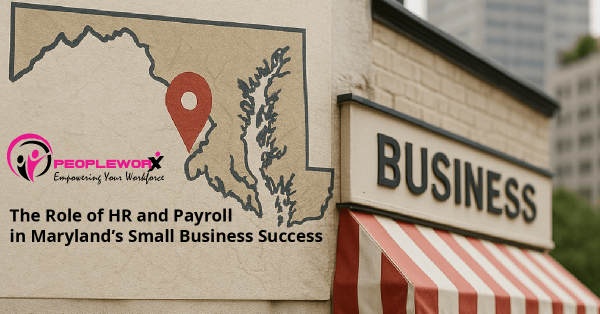401(k) participation is rising rapidly. Is your compensation package keeping up?
In 2025, retirement benefits have become a fundamental expectation for employees, rather than a mere perk. This cultural shift is evidenced by the fact that, for the first time, over half of all U.S. private-sector employees are now participating in an employer-sponsored retirement plan, such as a 401(k). This milestone underscores the increasing importance of these benefits in employees’ decisions about where to work and whether to remain with an employer.
In a tight labor market where skilled talent is hard to attract and harder to retain, small businesses must think beyond salary when crafting compensation strategies. Offering a competitive retirement plan isn’t just about compliance. It’s a powerful tool to build loyalty, reduce turnover, and boost your employer brand.
Why Retirement Plans Matter More Than Ever
1. Job Seekers Expect Benefits, Not Perks
According to a 2023 Transamerica Center for Retirement Studies report, 81% of workers say that retirement benefits are an important factor when considering a job offer. And nearly 70% say they would leave a job for better retirement benefits elsewhere. In today’s market, the presence and quality of a retirement plan directly affect your ability to compete for talent, especially among experienced candidates.
This trend holds true across generations. Millennials and Gen Z are engaging with retirement planning earlier than previous generations, thanks in part to student debt and economic volatility. They want employers who help them build long-term financial security, and they’re comparing plan features, not just whether one exists.

2. Retention Starts with Financial Security
Financial stress is a leading driver of workplace disengagement and turnover. When employees worry about their long-term finances, it affects focus, attendance, and morale.
A survey by PwC found that more than 50% of employees distracted by financial stress spend at least three hours per week dealing with personal finance issues at work. That’s over 150 hours a year per employee in lost productivity.
Offering a strong retirement plan, especially one with an employer match or auto-enrollment, signals that you care about your team’s future. And research confirms the impact: employers with robust 401(k) programs see up to 32% lower turnover rates compared to those without, according to data from Fidelity.
Real-World Examples: What Other Small Businesses Are Doing
In a Lincoln Financial Group study, small business owners overwhelmingly said they believe competitive benefits help them retain top talent. Yet, many also admitted they struggle to balance affordability with competitiveness.
Here are a few noteworthy approaches:
- Small creative agencies and consulting firms are bundling their 401(k) offering with financial wellness education, empowering employees to make informed decisions about savings and debt.
- Independent retailers and franchise owners are using retirement plans with short vesting schedules to improve retention during critical growth phases.
- Local contractors and professional service firms are leveraging state-run retirement mandates (like CalSavers or Maryland$aves) as a springboard to offer more competitive private plans with higher contribution limits and better integration with payroll.
In each of these instances, retirement benefits are viewed not as a sunk cost, but as an integral component of a comprehensive total rewards strategy. This approach enables small businesses to significantly enhance their competitive standing.

What the Law Says (and Why Compliance Is Just the Beginning)
The SECURE Act 2.0, which phases in over the next two years, is pushing more employers into the retirement space. For example:
- Long-term part-time employees must now be offered plan access if they’ve worked 500+ hours for two consecutive years.
- Employers can now earn tax credits of up to $5,000 for plan startup costs and up to $1,000 per employee in matching contributions, depending on company size.
- Many states, including Oregon, California, Illinois, and Maryland, have already mandated retirement plans for businesses over a certain employee threshold.
Compliance with retirement plan offerings has become a legal mandate for many employers, making it more than just an option. However, simply meeting the compliance requirement is insufficient. Employees are actively comparing their current benefits with other available options, highlighting the critical importance of your plan’s specifics. Elements such as employer match percentages, the availability of Roth options, auto-enrollment features, and the provision of financial tools and education significantly impact both employee perception and participation.
Tackling the Common Objections
“It’s too expensive.”
Small businesses often fear that retirement plans are unaffordable. But thanks to SECURE Act tax credits, your actual cost may be far lower than expected. And when you factor in the cost of turnover, recruitment, and onboarding, a competitive benefits program can actually save money over time.
For example, replacing a mid-level employee can cost upwards of 50–60% of their annual salary. A modest employer match, say, 3% of salary, might cost far less annually while helping you retain key staff.
“It’s too complicated to manage.”
Modern 401(k) providers now offer fully integrated solutions that sync with your payroll system, handle compliance updates automatically, and offer employee support. With the right partner, managing your plan takes less time than handling PTO.
“Our employees won’t use it.”
Participation in employer-sponsored plans is rising, especially when employees receive clear communication and access to digital tools. Providers like PeopleWorX offer educational resources, one-on-one guidance, and user-friendly dashboards to help your team see the value of contributing.
How PeopleWorX Supports Small Businesses
At PeopleWorX, we work with businesses across industries to design and manage retirement plans that balance cost, compliance, and competitive value. Here’s how we help:
- Assess Your Current Benefits Package We evaluate how your current offerings compare to industry standards, local requirements, and employee expectations. This helps you identify gaps before they become liabilities.
- Design Plans That Grow with You From SIMPLE IRAs to integrated 401(k) plans with Roth options, we help tailor a solution that fits your size and goals. Our Starter 401(k) Plan begins at just $49/month, with full payroll integration and compliance support.
- Educate and Engage Your Workforce We provide customizable communication templates, onboarding resources, and employee education sessions to drive awareness and increase participation.
- Keep You Ahead of Regulatory Changes
As laws evolve, our team ensures your plan stays compliant, saving you from costly fines or manual updates.
5 Steps You Can Take Today
- Audit your current benefits to see how they stack up to the market.
- Talk to your team. What do they actually value? Retirement plans consistently rank in the top 3.
- Calculate the true cost of turnover. Even one exit can justify the cost of a 401(k).
- Explore plan types. Consider 401(k), SIMPLE IRA, or pooled employer plans based on your headcount and budget.
- Schedule a benefits strategy session with PeopleWorX to explore your options without pressure.
Retirement Plans: A Present-Day Essential for Your Business
Offering a retirement plan is a strategic move that strengthens your workforce today, not just a long-term investment in your employees’ future. In an era where flexibility, culture, and total compensation define employer choice, the right retirement plan helps small businesses compete on a larger stage. You don’t have to overpay or overcomplicate; you just need the right strategy, and the right partner.
Ready to see how your benefits stack up?
Let’s talk about how PeopleWorX can help you stay compliant, attract talent, and build loyalty through a smarter retirement plan.






